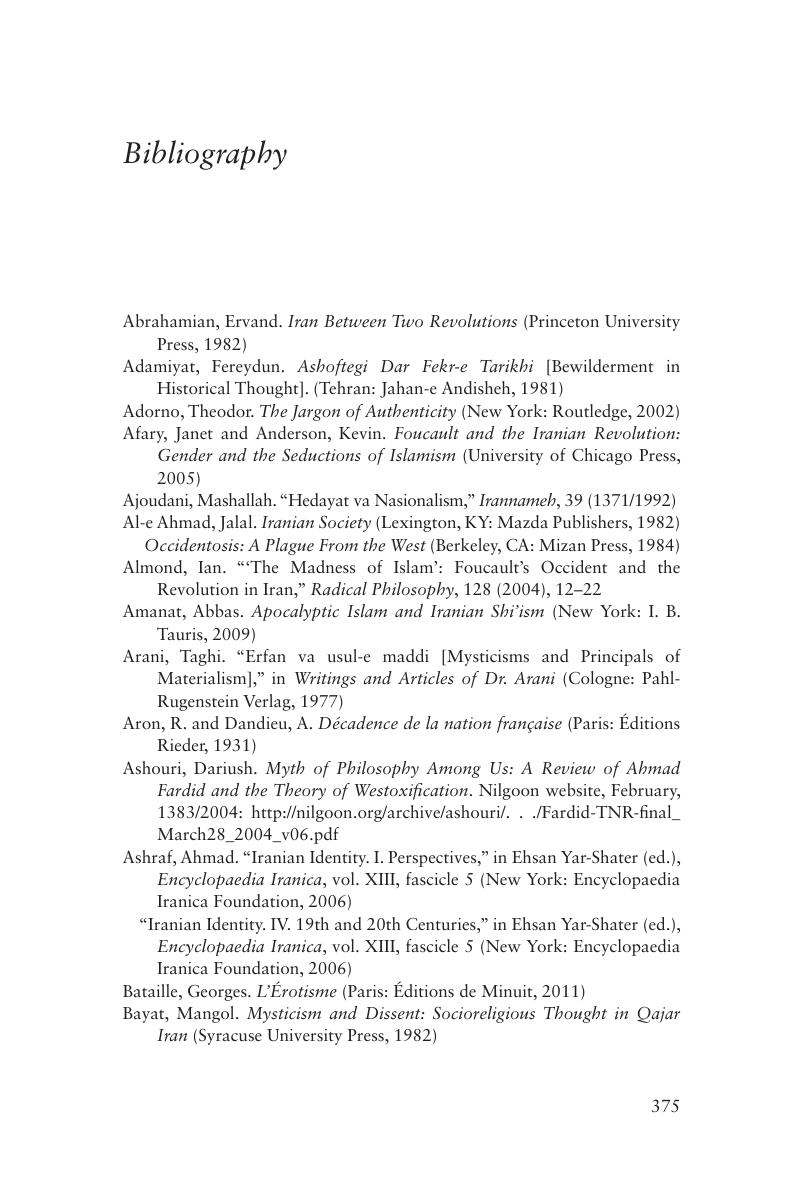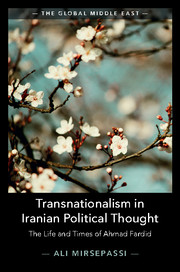Book contents
- Transnationalism in Iranian Political Thought
- The Global Middle East
- Transnationalism in Iranian Political Thought
- Copyright page
- Contents
- Illustrations
- Acknowledgments
- Note on Transliteration
- Chronology of Ahmad Fardid's Life and Work
- Part I Introduction
- Part II The World of the Young Fardid
- Part III Orientalism and “Spiritual Islam”: Fardid, Corbin, Foucault
- Part IV Ahmad Fardid's Philosophy after the Revolution, 1978–1981
- Part V Fardid Remembered
- Glossary of Names, Terms, and Events
- Bibliography
- Index
- References
Bibliography
Published online by Cambridge University Press: 04 July 2017
- Transnationalism in Iranian Political Thought
- The Global Middle East
- Transnationalism in Iranian Political Thought
- Copyright page
- Contents
- Illustrations
- Acknowledgments
- Note on Transliteration
- Chronology of Ahmad Fardid's Life and Work
- Part I Introduction
- Part II The World of the Young Fardid
- Part III Orientalism and “Spiritual Islam”: Fardid, Corbin, Foucault
- Part IV Ahmad Fardid's Philosophy after the Revolution, 1978–1981
- Part V Fardid Remembered
- Glossary of Names, Terms, and Events
- Bibliography
- Index
- References
Summary

- Type
- Chapter
- Information
- Transnationalism in Iranian Political ThoughtThe Life and Times of Ahmad Fardid, pp. 375 - 382Publisher: Cambridge University PressPrint publication year: 2017



